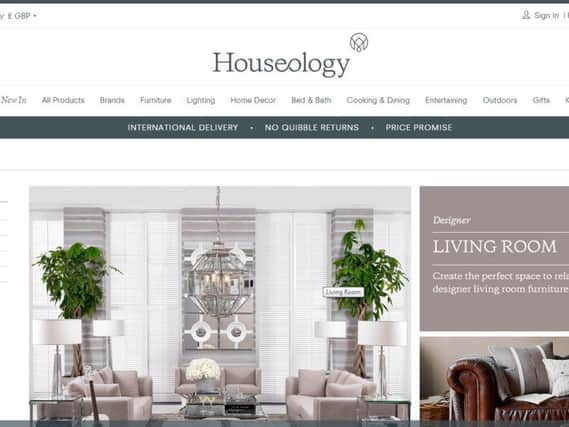Occa-Home on beating the recession through innovation


Kate Mooney of Occa-Home told an audience from small and medium-sized enterprises (SMEs) at a Scottish Enterprise Infinite Possibilities seminar in Glasgow that the path to success wasn’t always easy.
“You need good ideas, passion and faith in yourself and your business,” said Mooney, who described the challenge of transforming her interior design business servicing large hotel chains after the financial crisis hit in 2008.
Advertisement
Hide AdAdvertisement
Hide Ad“We had a traditional architectural and interior design business, working with hotel chains like Hilton and Intercontinental. We were punching above our weight with a good portfolio of clients and opened in Dubai in 2007.
“Then the banking crisis hit and clients could not get funding to build hotels. We had a great business but suddenly we had no clients.”
Mooney said it was an “adapt or die” situation: “You have to think outside the box to survive. Some of the hotel’s guests came to us and asked if we could sell direct to them but we were not set up as a B2C (business-to-consumer) business. We looked at whether we could sell some of our chic hotel furniture online to keep our great team together – but it meant persuading interior designers they could be e-commerce experts overnight.
“Necessity was the driver and we built a website and an online shop in what turned out to be the fastest-growing sector online. We quickly realised that market was much bigger – and more scaleable – than what we had been doing previously.
“Subsequently my husband and I put our pensions into it and sold every-thing but the children to get it off the ground. We took a huge risk but sometimes you just have to go for it.”
Mooney says the biggest challenge was when the financial crisis hit and Occa’s bank pulled in its credit lines just as they were launching the website: “It was a question of do we give up or draw on our determination to get through?”
Occa got through, helped by external investors, including entrepreneur Bill Dobbie, who was impressed that Occa had built a website, found customers and started exporting so quickly.
He invested, along with Mooney’s brother-in-law, and joined the board – to be joined later by retail veteran Bob Willett and then former Tesco boss Sir Terry Leahy.
Advertisement
Hide AdAdvertisement
Hide Ad“We have huge ambition and they give us great expertise,” said Mooney. “I might not own as much of the business as I would like but we have a much stronger business as a result of their input. To innovate and do things differently, we decided we wanted not only investment but also some great people in the business.”
There were some doubters: “People said ‘You’ll never sell a £3,000 sofa online; you’re mad.”
But Occa defied those doubters and is now selling to more than 100 countries, after its architects and interior designers were joined by a digital marketing and tech team. “We are experts in furniture and design but we’ve become a marketing and technology business too,” says Mooney.
“We had to get out of our comfort zone and it was worth it – we were turning over around £750,000 at the edge of the recession and now we are up to £5 million and doubling year on year.
“It’s been a real rollercoaster and there have been sacrifices, especially around time with family and friends. It’s become a competitive space and to stay ahead of the game we are constantly innovating and differentiating.
“Consequently we are now re-branding Occa-Home with our exciting new Houseology.com concept which is all about empowering customers to be interior designers.”
Bill Corr, an innovation specialist with Scottish Enterprise, said he and the other 15 innovation advisers were all extremely busy and Scotland’s historic reputation for innovation was still very much alive and well. The biggest risk, he said, was not having a strategy.
Neil Fraser, an export adviser with Scottish Development International, said businesses had to understand the needs of any export market very clearly – and had to take advantage of advice. “We are here to take the pain away from businesses,” he said.
• This article was produced in partnership with Scottish Enterpise